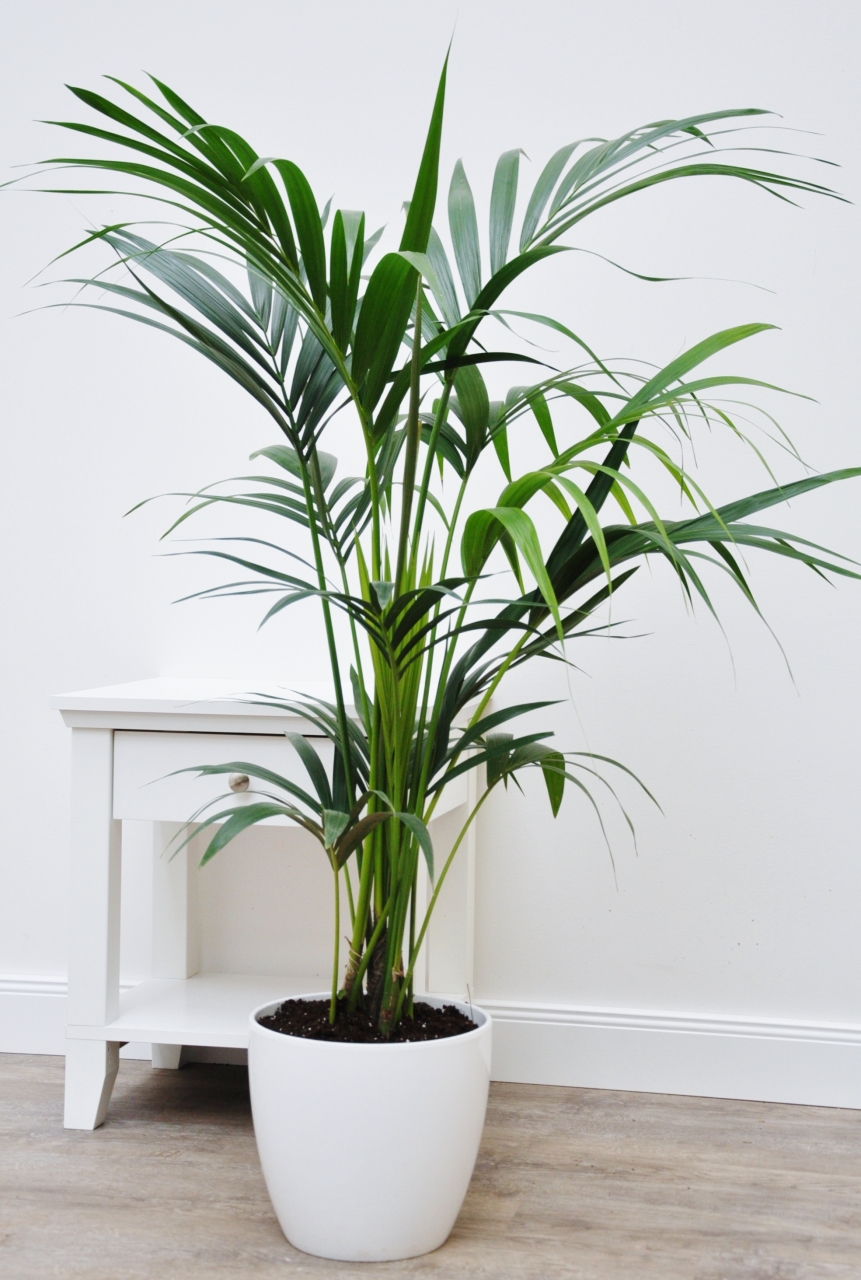
Kentia Palme (Howea) Infos zu Palme, Eignung und Pflege
Kentia Palm Care. Temperature: Room temperatures of around 65°f / 16°c — 75°f / 24°c are ideal. The temperature should not become lower than 55°f / 12.7°c. Light: Indirect sunlight for many of the popular indoor palms is advisable and the Kentia particularly grows well and maintains its health in low light conditions.
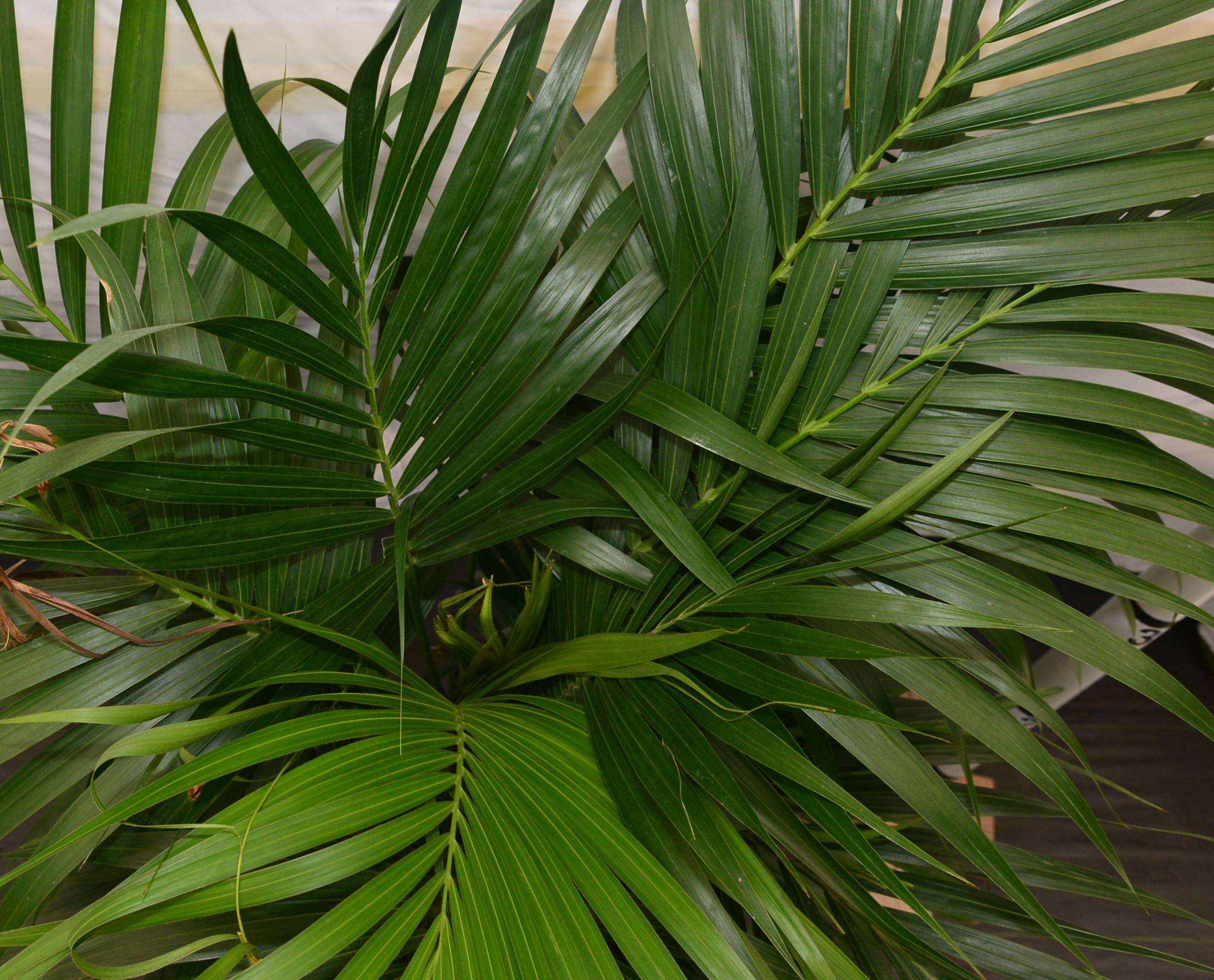
Kentia Palm Large High Quality Tropical Plants Shipped to your Door
In the winter, when the plant goes dormant, plan to cut back on watering. Feed your kentia palm with standard houseplant fertilizer diluted to half-strength once per month in spring, summer, and fall. Pause feedings during the winter months. If the tips of the lower leaves turn dry and brown, it's a sign of overfeeding.

Kentia Palme Gießen Kentia palme, Palme pflege, Pflanzen
Kentia Palm, also known as Thatch Palm or Paradise Palm, are gorgeous palms that will bring stunning elegance to your indoor space. These palms are very hardy and easy to care for and provide the feel of a tropical environment at your house.. Kentia Palm is a slow grower that is a South Pacific region native.. There are two varieties of Kentia Palm found, namely Howea Belmoreana and Howea.
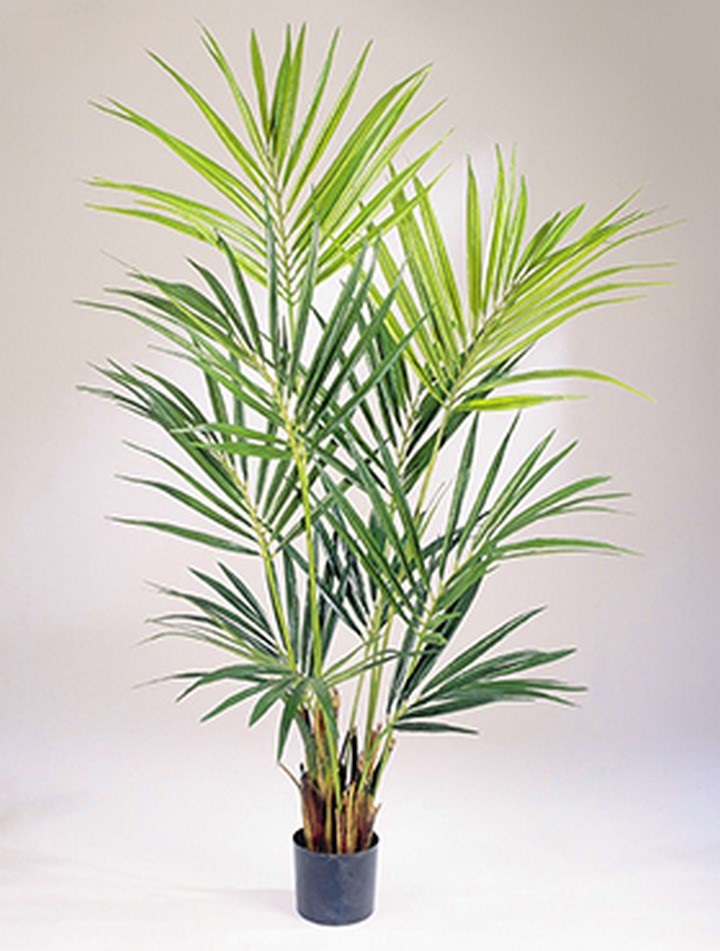
Kentia Kunstpalme Die Palme • Palmenmarkt
Coffee grounds can add phosphorus, magnesium, copper, and nitrogen to the soil, which helps the kentia palm plant grow strong. They also help increase the acidity of the potting soil, which palm trees generally prefer. If you plan to use coffee grounds for this plant, consider investing in a soil testing kit to make sure you don't go overboard.
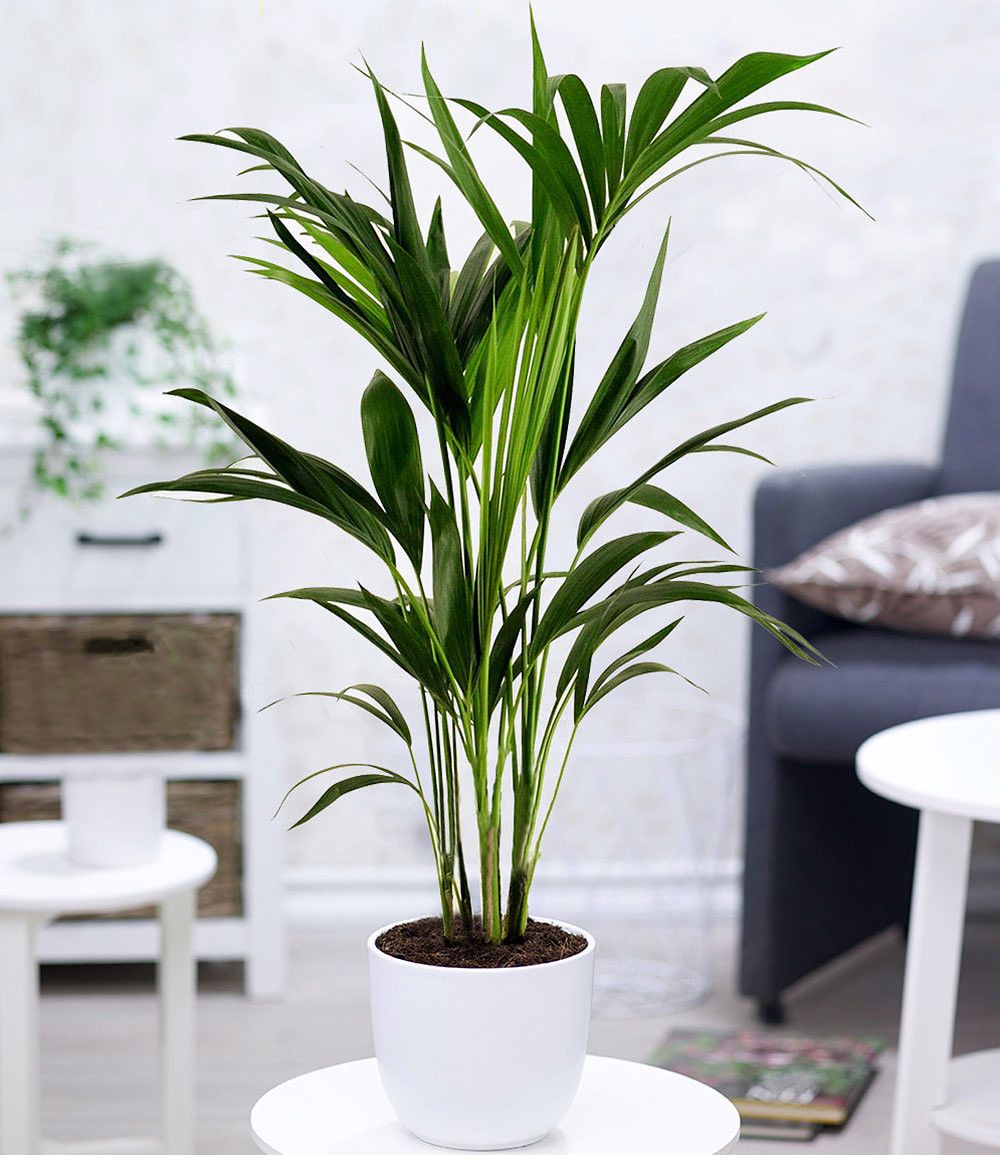
Kentia Palme,1 Pflanze günstig online kaufen Mein Schöner Garten Shop
The kentia can be cultivated outdoors in USDA hardy zones 9b through 11. It is a hardy palm that will thrive as an indoor plant despite the low light, dust, heating, and even drought when owners forget to water. This palm plant can tolerate temperatures as low as 25° and as high as 100° Fahrenheit, but the 65° to 85°F range is ideal.

Elegant Kentia Palme Giftig Für Katzen
Once Kentia palm plants have established, they require very little care. Feed your container grown plants with a controlled release fertilizer with an NPK ratio of about 3-1-2. Excessive fertilization may cause the tips of lower leaves to turn brown and die. While normally carefree, they are prone to potassium deficiency.

Kentia Palm Large High Quality Tropical Plants Shipped to your DoorPLANTZ
Water your new Kentia Palm in well and tip out any excess water from the base of the cover-pot or saucer (if using). Kentia Palms prefer a moist soil that is never soggy and they are ready to be watered once the top 2-3cm of potting mix is dry to the touch. Never let water pool in the base of cover-pots or in saucers as your Kentia Palm will.
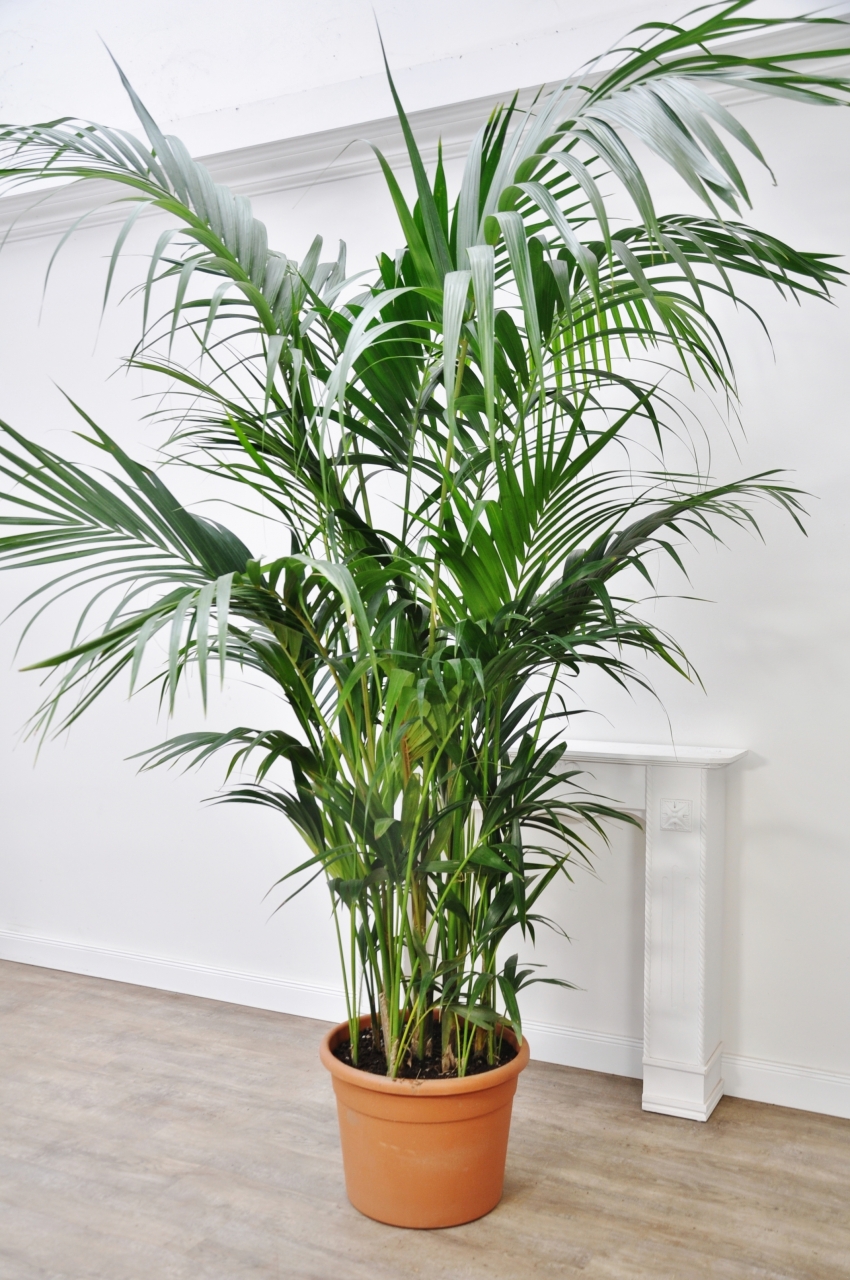
Kentia Palme (Howea) Infos zu Palme, Eignung und Pflege
The Kentia Palm, known scientifically as Howea forsteriana, indoor palm hailed for its elegant appearance and relatively low-maintenance care requirements. Possessing an ability to adapt to varying light conditions, this Palm is a favorite amongst plant enthusiasts and interior designers alike. However, while it may be more forgiving than some.

Grüne Brise im Wohnbereich mit der Kentia Indoor Plants, Outdoor, Home Decor, Kentia Palm
The Kentia palm (Howea forsteriana) is a majestic palm tree that thrives in tropical climates and is a popular houseplant. This palm is slow-growing but ultimately can reach 40 feet high. It has arching, erect, feather-like fronds with green leaves that stretch around 10 to 12 feet long. The fronds grow from a slender single trunk that matures.
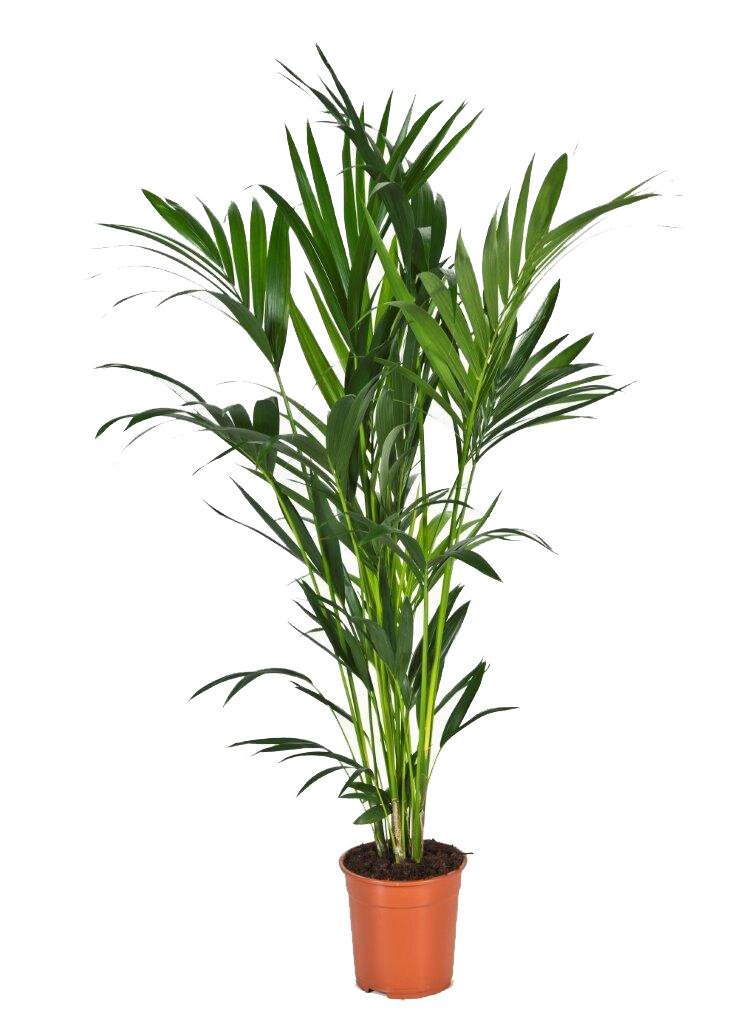
Kentia Palme, (Kentia forsteriana), ca. 150cm hoch, im ca. 24cm Topf, 89,95
Howea forsteriana, the Kentia palm, thatch palm or palm court palm, is a species of flowering plant in the palm family, Arecaceae, endemic to Lord Howe Island in Australia. It is also widely grown on Norfolk Island. It is a relatively slow-growing palm, eventually growing up to 10 m (33 ft) tall by 6 m (20 ft) wide.
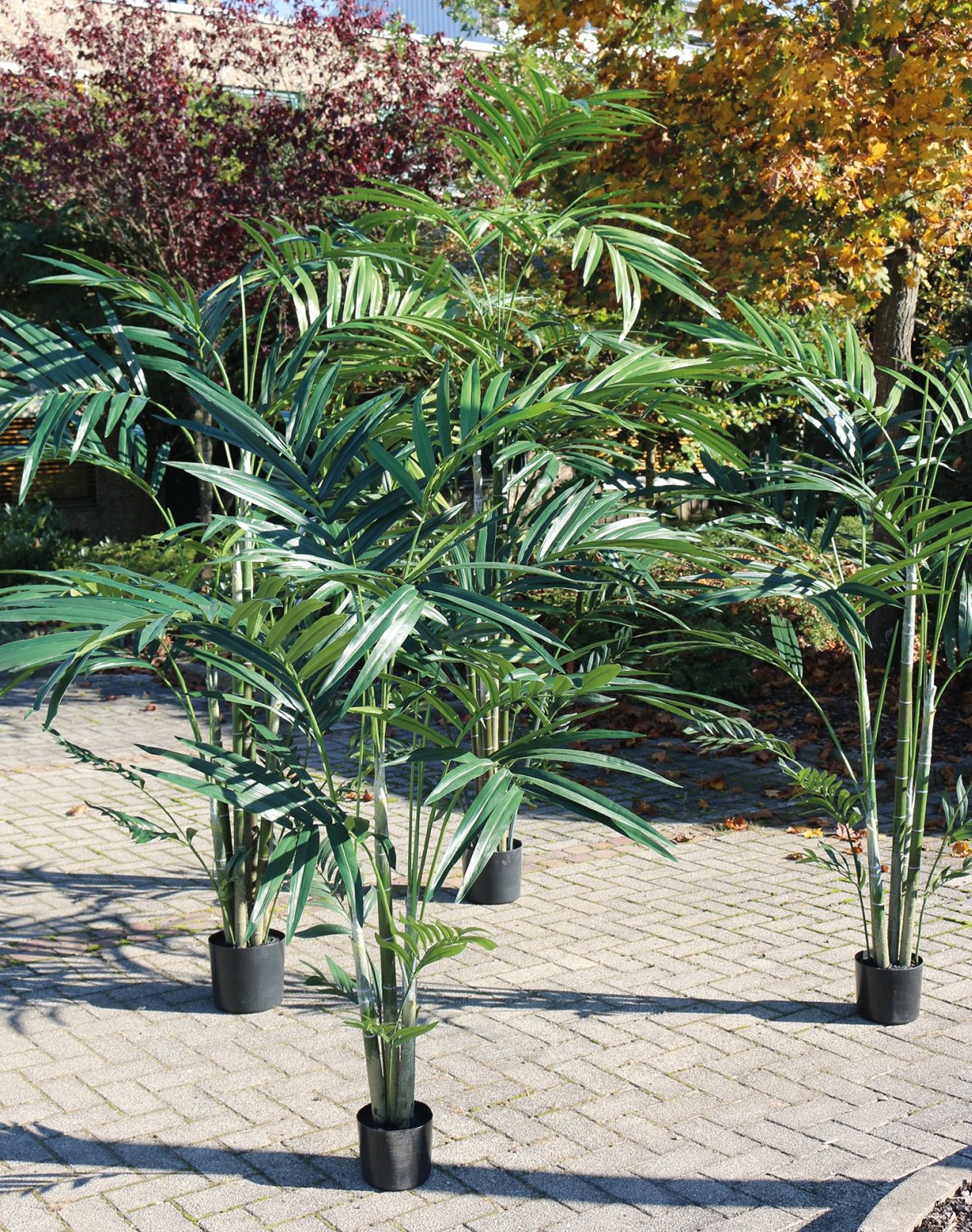
Künstliche KentiaPalme, getopft, 210 cm, grün
Kentia Palm Temperature & Humidity Preferences. The Kentia palm prefers temperatures between 60-80ºF. These plants don't like hot or cold drafts, so keeping them away from vents and exterior doors is best. They prefer humid conditions but can also tolerate moderate humidity. They generally don't require a humidifier, but you can spritz.

Artificial Kentia Palm 1.5m
The national parliament can be counted on to move with maximum speed and sympathy whenever Quebec's dignity is at stake.
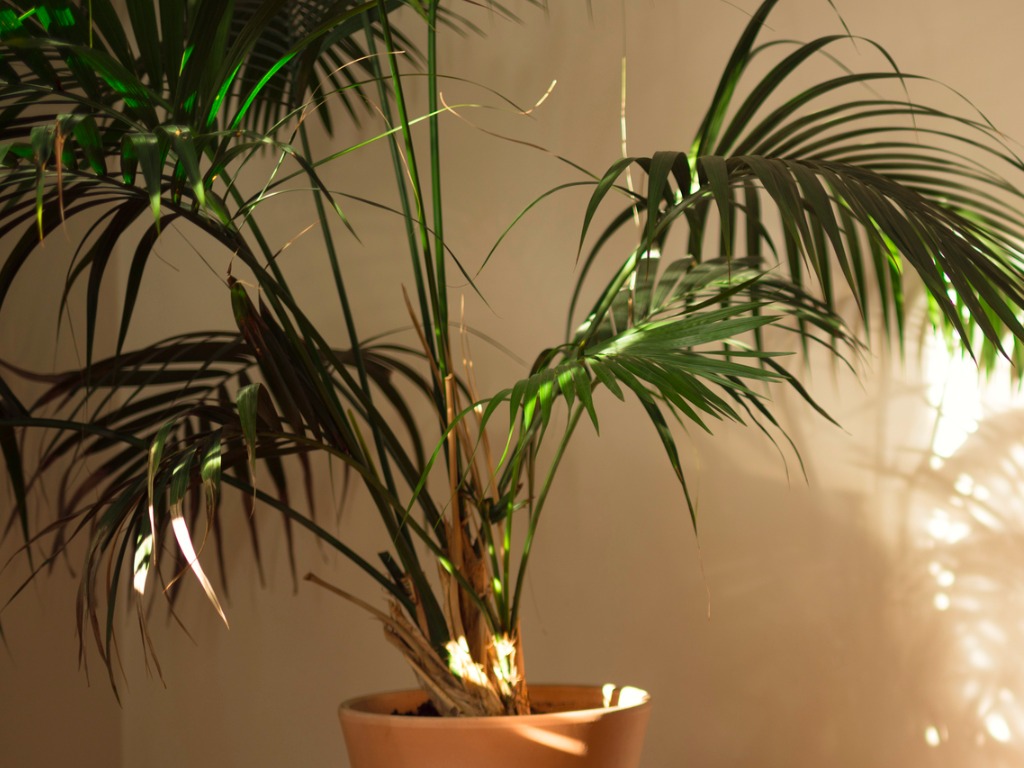
KentiaPalme » An diesem Standort fühlt sie sich am wohlsten
0.8 cups. every 9 days. Kentia Palm needs 0.8 cups of water every 9 days when it doesn't get direct sunlight and is potted in a 5.0" pot. Use our water calculator to personalize watering recommendations to your environment or download Greg for more advanced recommendations for all of your plants. Water 0.8 cups every.

Kentia Palme 170 Messe Mietmoebel
3. Keep them out of direct sunlight. Display a large Kentia palm in a pot on the floor in a bright position, but out of direct sunlight. (Image credit: Photology1971 / Alamy Stock Photo) Like the prayer plant, kentias like a cool area in the house that receives bright but indirect light, such as a few feet away from a window.

Schefflera Giftig Baby Die Kentia Palme Ist Ideal Fur Katzenbesitzer Pflanzen Pflege Kentia
To successfully propagate Kentia palms, you need to pick their fruits and soak them in warm water for several days. Next, you have to separate the seeds from the fruits and place them in a potting soil mix. From there, you have to make sure that you water the soil regularly to keep it hydrated.

Kentia Palme Palmen Pflanzen Der Palmenmann
2. Treat overwatered plants straight away. The Kentia palm suffers from few problems, but like many indoor plants, including the Swiss cheese plant, overwatering will result in root rot and yellow leaves, while the fronds may also turn yellow and wilt if the plant is underwatered.As with dracaenas, brown leaf tips can also be caused by too little humidity or water, or scorch if the plant is.